Xi Jinping will soon remove one of the last remaining obstacles to his presidency. Almost certain to be passed by China’s National People’s Congress this week, a legal reform that removes the term limitation on the office of the president, will effectively transform President Xi into Emperor Xi.
Amid escalating military involvement in maritime disputes, espionage scandals in Africa, the harassment of academics in New Zealand, and a quickly stagnating economy, China has yet again proven it is not destined to emerge as a progressive political powerhouse, but rather to remain a technocratically-led authoritarian dictatorship.
All this, thanks to Xi’s backers within the Chinese Intelligence Service (CIS).
‘Hope is not a plan’
When Xi came to power half a decade ago, many hopefuls thought he would come to represent a change in not only the long standing technocratic ruling class, but a move toward economic freedom and progressive politics. Xi had a reputation for being part of the then growing number of “careful reformists,” and he had not been involved in any scandals or noteworthy incidents.
Instead, Xi quickly emerged as a modern day hardliner whose total rule over the domain was a showcase in violent authoritarianism. Under Xi’s rule, the various agencies within the CIS received additional powers, and began quietly purging schools and industry of thousands of possible opponents as well as gays, religious and ethnic minorities.
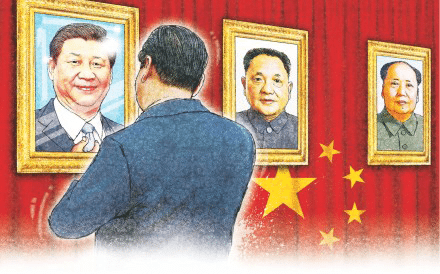
As part of this, CIS quickly began leveraging China’s geographical location and the sheer number of would-be consumers to ensure that its position in the technological spectrum was guaranteed. This led to China becoming a bleeding-edge 21st century surveillance state. Due to the enormity of the emerging Chinese market, many consumer-oriented Western brands quickly saw fit to adjust and adapt their approaches to befit the Chinese government. It does not do to lose market share over unprofitable notions, such as privacy or human rights.
Apple, for instance, announced in the early days of 2018 that it would move its privacy-critical cloud system to China. This, to accommodate recent Chinese laws dictating that companies, even American ones, that do business in China must make their cloud storage systems available to the Chinese government.
Under Xi’s leadership, the various agencies within the Chinese Intelligence Service received additional powers, and began quietly purging schools and industry of thousands of possible opponents as well as gays, religious and ethnic minorities.
Many hoped that the economic success of China would naturally lead to the country evolving toward a more progressive political landscape. That by the end of Xi’s two terms, the next generation of politicians would see agreeable evolutionary changes. But in light of the recent changes in Beijing, changes that many analysts say pave the way for Xi to become a dictator for life, these hopes appear to suffer.
Now, it appears that those dewy-eyed enough to hope for a free China in their lifetime, are seeing their hopes crushed.
It’s the Economy
China’s economy is stagnating. While most analysts do not believe that it’s facing an economic collapse, they do not believe that the country is facing any great economic growth either. Instead, most experts believe that the best case scenario for China is one of economic stagnation.
Throughout the late 1990s till mid 2000s, the Chinese economy was referred to as a miracle. Since 1990, when the Chinese economy opened up toward the outside world, the national gross domestic production (GDP) growth rate has exceeded 7%.
However, in 2016, the miracle appeared to be over. The GDP dropped from 7% to 6.5%, in 2015 and many analysts believe the government-provided 6.5% number was artificially inflated – that in fact the GDP for 2016 might even be below 5%. As of March 2016, the Chinese national debt stood at approximately CN¥ 28 trillion (US$ 4.3 trillion), equivalent to about 41% of the then GDP.
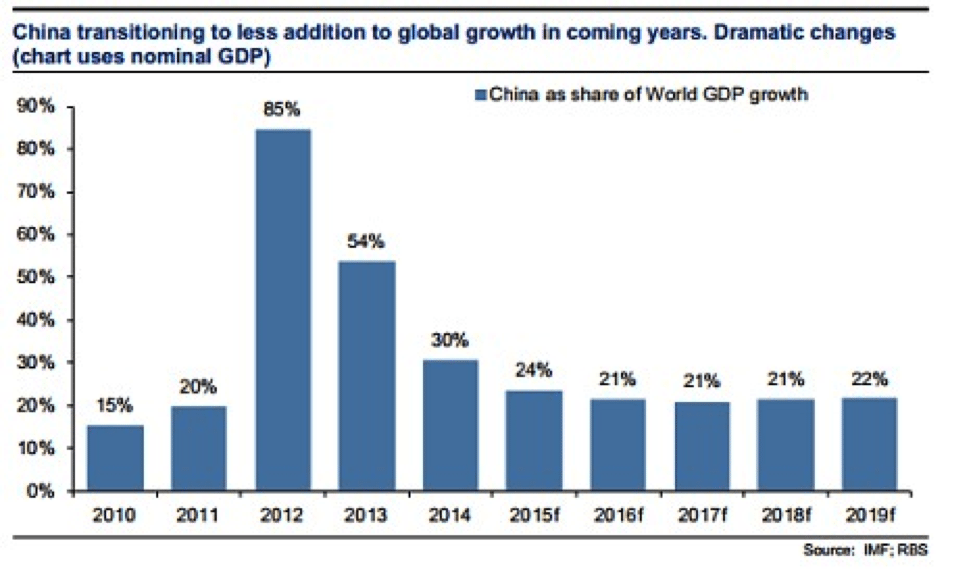
2017 fared no better and saw China’s currency reach trade deficits and immense low points against the US dollar throughout the year. In fact, China went from currency trading at a surplus to a deficit of $9.2 billion in February 2017. Chinese analysts had a month earlier stated that they were expecting to be trading at a surplus of $27 billion by February. The Chinese government quickly acted, announcing by early March 2017, that it had restored its foreign-currency reserves. However, no external audit of the foreign-currency reserve was made available at the time, nor has one since.
“The massive deterioration in China’s terms of trade could become a much more serious issue [for the Yuan] if the data does not rebound next month,” said Boris Schlossberg, managing director of currency strategy at BK Asset Management, on March 6th, 2017. In fact, the underperforming GDP growth rate combined with currency fluctuations, have forced China to indicate significantly less ambitious GDP targets for 2017 and 2018. The official GDP target for 2017 was 6.5%, and the 2018 target is stated at 6 – 6.5%.
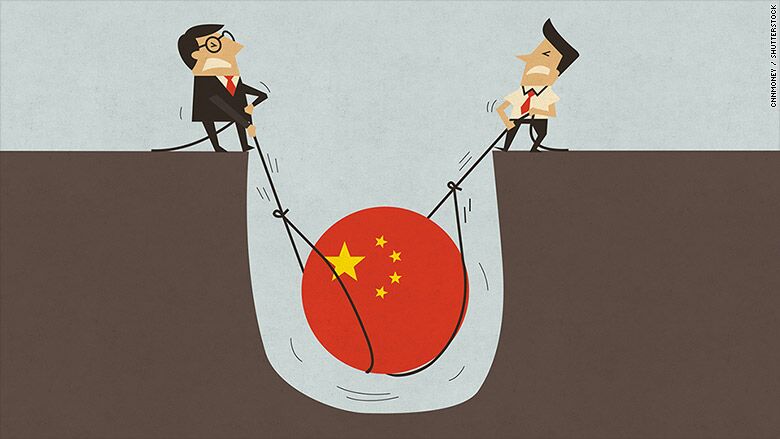
The unemployment numbers are likely to increase as well, as the government appears to be unable to prevent the looming property bubble in its metropolitan hubs from bursting. China has just begun to recover from the last one, which spanned 2005 to 2011. Yet, the government and analysts alike have agreed that another crisis is quickly emerging. Both Beijing and Shanghai have become infamous for their housing prices, with double-digit return on investments being viewed as a near guarantee, and the ease of receiving bank loans to support the investment into new developments.
All this, while the government has failed with many of the frameworks that many find necessary to move the country from a strictly industrial economy toward a more innovative one. China’s brain drain is fairly well-documented and ongoing. Many young, well-educated Chinese believe that China is a fine country to raise your children, or to produce products, but not one in which products are created. The government has, on a number of occasions, promised to rectify the problem, and to listen to the entrepreneurs, yet little appears to have happened.
For example, one major complaint is the lack of intellectual property protections in China which further creates a disincentive for creating. Another problem that many Chinese entrepreneurs face is that state-owned enterprises still dominate the majority of the industries, and that corruption is seen as endemic whenever dealing with the government.
![Image A sales assistant talks to visitors in front of models of apartments at a real estate exhibition in Shenyang, Liaoning province April 17, 2014. [Sheng Li—Reuters]](https://limacharlienews.com/wp-content/uploads/2018/03/China-housing-market.jpg)
With unemployment numbers rising, GDP lowering or at best stagnating, and the Yuan losing ground, the future does not look bright. In fact, many Chinese believe that the best investment available in China right now, is in the domestic Panda gold coin currency.
In fact, the US economy is arguably doing better than the Chinese economy.
In the immediate aftermath of the announcement that Xi will be able to remain president beyond what has been stated, state censorships went into overdrive.
Crackdown: Dictation by China
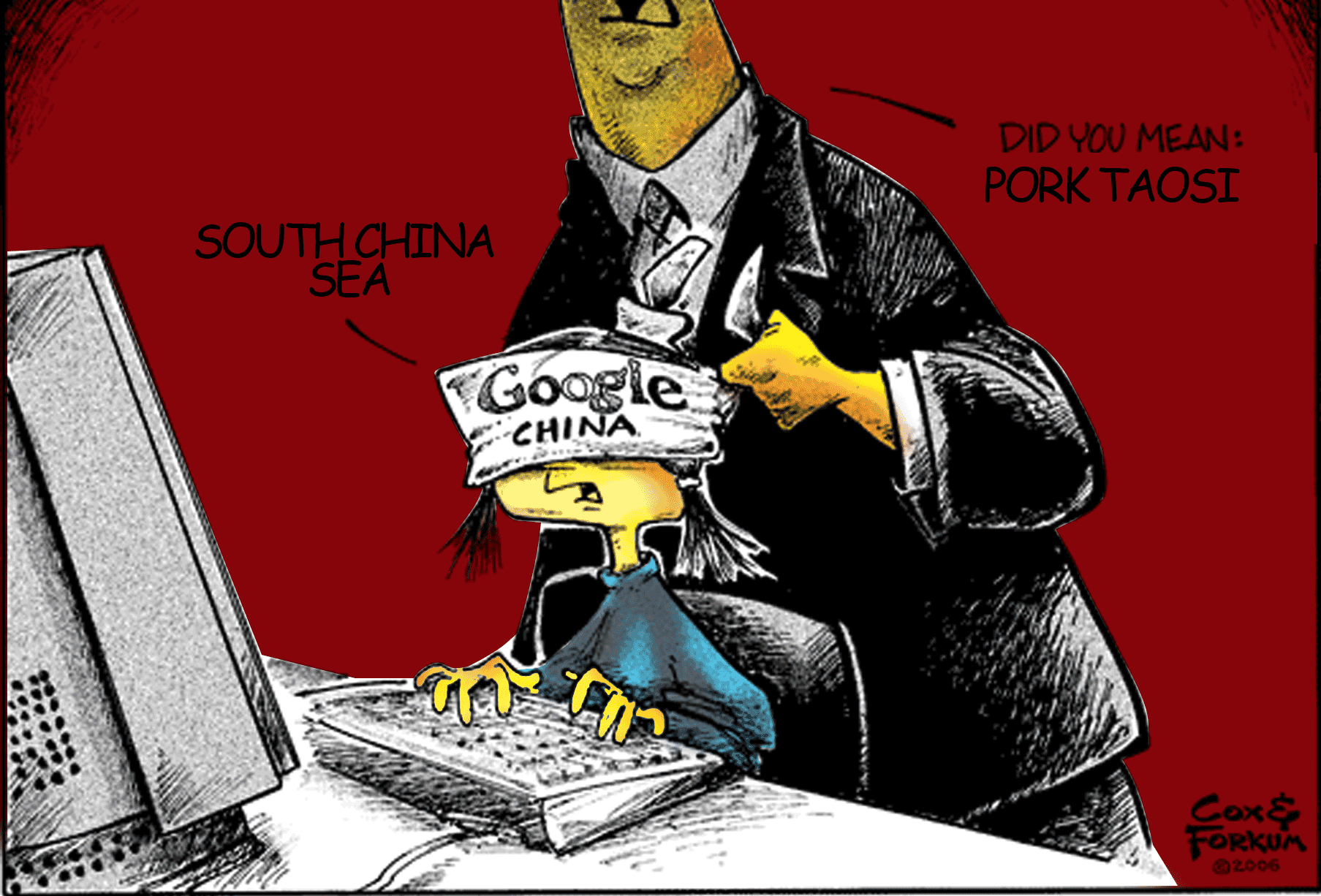
In the immediate aftermath of the announcement that Xi will be able to remain president beyond what has been stated, state censorships went into overdrive. The so-called Great Wall of China, the filtering and firewall system that China uses to keep the outside world’s relatively free internet at bay, began censoring internet posts.
The China Digital Time website has compiled a list of some of the search terms that Weibo, the Chinese version of Twitter, was blocking. Most of the search terms censored were fairly predictable, but some surprises were still found.
Among the more predictable items on the list, we find items such as:
– ‘Ten thousand years’ (万岁), which is China’s way of saying: ‘Long live!’ or ‘Viva!’
– ‘Disagree’ (不同意)
– ‘Xi Zedong’ (习泽东) – a hybrid of the names of Xi and Chairman Mao Zedong
– ‘Shameless’ (不要脸)
– ‘Lifelong’ (终身)
-‘Personality cult’ (个人崇拜)
-‘Emigrate (移民)
– ‘Immortality’ (长生不老)
Posts relating to George Orwell were also blocked.
Less predictable, however, was the censoring of the 14th letter in the Latin alphabet: the letter ‘n’. While the ban did not last long, just under 48 hours, it did amuse and befuddle observers. The prevailing theory amongst outside observers is that the letter was censored to ensure that posts using ‘n’ as part of a mathematical formula (N = n terms in office, where n has a higher value than 2) describing the number of terms in office Xi could hold, would not be allowed.
An editorial in the government-affiliated Global Times tabloid was quick to defend the actions of the government. In fact, some observers have pointed out that the Global Times editorial was produced so quickly that it stands to speculate if it was written before events began to unfold.
Largely, the censors remain and are likely to remain for quite some time. After all, this is a country that banned the use of Disney’s rendition of the popular character Winnie-the-Pooh, because it held some similarity to the image of Xi Jinping, and was thus often used by sly protestors.
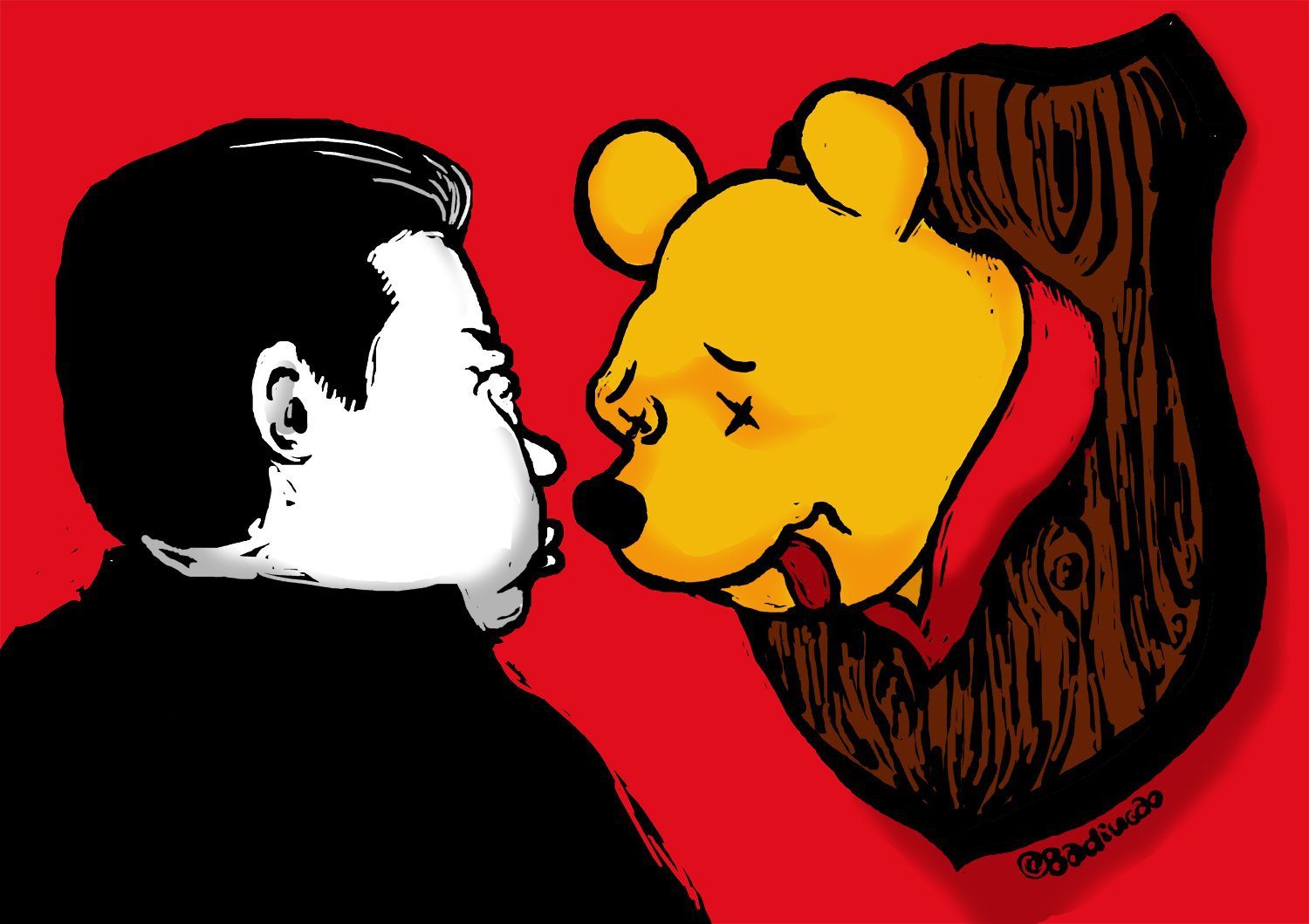
Military Expansion
A fleet of destroyers and at least one frigate, a 30,000-ton amphibious transport dock and three support tankers, entered into the East Indian Ocean in early February. Their destination: the international waters outside of the Maldives.
Officially, the Chinese warships’ purpose was to act as a stabilizing entity, their very presence instilling tranquility in the hearts and minds of the Maldivians. Ultimately, China sent this sliver of their fleet to showcase Chinese dominance and to impose Chinese influence over the Maldives—peace through gunboat diplomacy.
The Maldives have long been a proxy battlefield between the old foes China and India as they duke it out using proxy politicians. This reality became impossible to deny after the Maldivian President, Abdulla Yameen, signed an agreement with the Chinese government to have them build much needed logistical hubs on the Maldives. Also part of the agreement was renewed military cooperation between the two countries. Ultimately, this cooperation could lead to the Chinese Navy’s capability to build a naval port inside Maldivian waters. India’s protest was instantaneous, and its local proxies immediately sought to disrupt the deal.
Before the Chinese fleet arrived, China had advised any Chinese civilians visiting the Maldives to avoid the area. The Maldives is a popular destination for well-to-do Chinese, as the country is known for its luxury hotels, scuba-diving resorts and limpid tropical seas.
![Image Members of the Chinese People's Liberation Army Navy march in formation during a training session at the 60th National Day Parade Village on the outskirts of Beijing, on September 15, 2009 [Joe Chan / Reuters]](https://limacharlienews.com/wp-content/uploads/2018/03/China-Navy-.jpg)
If China manages to instill its variation of peace in the Maldives, it will ensure that China has a military presence less than 400 kilometers, or 250 miles, away from India. This is just a small part of the overall perceived Chinese military build-up throughout the South China Sea. As part of this build-up, China has claimed waters that neighbouring Brunei, Malaysia, the Philippines, Taiwan and Vietnam also claim—all primary shipping routes of immense importance to global trade.
It was not until the [Chinese Intelligence Service] leadership gave its final nod that Xi reemerged, and could assume his role as President.
Intelligence and Harassment
The leadership of the Chinese Intelligence Service has long held a pivotal role in shaping China’s leadership’s understanding of the world. They have also long played the role of ultimate kingmaker in China.
A few months before Xi was announced the new President of China, in 2012, he disappeared for several months. A well-placed source inside the Military intelligence service of Thailand has informed Lima Charlie News that a large part of the unaccounted months were spent appeasing key individuals inside the CIS. It was not until the CIS leadership gave its final nod that Xi reemerged, and could assume his role as President.
Since then, key individuals within the CIS have held a special advising role to Xi. Often, these individuals hold no official role in the government, but, rather, function as ‘advisers without specific roles’. While more attention is spent on the more structured and known intelligence agency, Ministry for State Security (MSS), which officially has the role to develop stronger foreign intelligence capabilities and to facilitate Chinese interests across the world, it is the various unnamed entities within the CIS that have functioned as a worldwide, covert, enforcement agency on behalf of Xi’s personal interests.
Even New Zealand has entered the equation, as members from an unnamed bureau of the CIS have been caught harassing and breaking in to homes and offices of individuals in the country, notably Anne-Marie Brady, a fellow of the Kissinger Institute on China and the United States. Brady is just one of an ever-increasing number of academics who have grown critical of the Chinese sphere of influence.
At the direction of certain key individuals within the CIS, working alongside Xi, the MSS launched a far reaching espionage operation on the African Union (AU). The operation went as far as permanently installing microphones inside walls and desks while the new AU-headquarters was being constructed in Addis Ababa – in part by a Chinese firm. This espionage scandal is still unraveling, but could be one of the largest of its kind since the Cold War ended.
While MSS is a part of the CIS, in much the same fashion as the US Central Intelligence Agency (CIA) or National Security Agency (NSA) is part of the Washington DC-led National Security Council, the CIS does not just help direct, or ‘guide’ the MSS—rather, it actually has a number of well-funded smaller active intelligence groups within them. Each one is controlled by an individual, and holds no official office or agency name.
Of particular note, all intelligence agencies, including MSS, have received massive budget increases in the past 4 years. However, on the whole, the Chinese intelligence services remain largely a mystery for outsiders.
The World: One Nation
The two-term limit on the position of leader of China was written in light of the absolute power and the corruption, thereof, that Chairman Mao Zedong brandished during his 33 years in office. Mao did not just control the political and military branches of the country, he controlled the very thought of the country. He institutionalized and personified himself with the party, making it impossible for any one to challenge or oppose him. No leader since has wielded that degree of absolute power. But with Xi’s recent moves, this could change.
“It is the strongest sign yet that Xi intends to hold on to power, potentially taking China back toward one-man rule,” according to Emily Rauhala, China Correspondent for the Washington Post.
Since the death of Mao Zedong in 1976, there have been other powerful Chinese leaders, but by design no one has been allowed to reach the same level as Mao. Political officeholders Hu JinTao, Jiang Zemin, and Deng Xiaoping all guided the country toward a post-Mao economical and industrial advanced era, relying on the natural isolationist and nationalist Chinese workers to support them. Xi has not only continued this, but has added an immense layer of nationalistic dogma on top of it.
Under Xi, China has engaged in ambitious maritime claims, as well as political, intelligence and military operations. In fact, Xi appears to be seeking to control most of the main shipping lanes of navigation in the Indochina area, with the justification that those waters belong to modern China when viewed in a historic context. This means that China is seeking to control some of the most important global thoroughfares for transport and, with it, much of the world’s trade. It is no doubt that, with Xi now becoming a long-term fixture of power, the world is likely to see even more of the same coming from China.
As a result of these actions, the nationalistic fervor—as orchestrated by Xi—has ensured that Xi’s ambitious goal of placing China in what he deems to be its rightful place in the world order—the center—goes unchallenged.
The fact that Xi sought to change the constitution so early in his presidency is a further sign of the aggressive approach he is taking and the concerns he has for the future. It is likely that Xi could have remained in power until 2023 with little to no opposition. But if the Chinese economy continues to stagnate, and China continues to seek military and political discourse with the world, then Xi might not have been able to drive through a constitutional reform at that point. Doing it today, before the winds hit, equips him with a safeguard for his role—and with it, China’s course.
John Sjoholm, Lima Charlie News
John Sjoholm is Lima Charlie’s Middle East Bureau Chief, managing editor, and founder of the consulting firm Erudite Group. A seasoned expert on Middle East and North Africa matters, he has a background in security contracting and has served as a geopolitical advisor to regional leaders. He was educated in religion and languages in Sana’a, Yemen, and Cairo, Egypt, and has lived in the region since 2005, contributing to numerous Western-supported stabilisation projects. He currently resides in Jordan. Follow John on Twitter @JohnSjoholmLC
Lima Charlie World provides global news, featuring insight & analysis by military veterans, intelligence professionals and foreign policy experts Worldwide.
For up-to-date news, please follow us on twitter at @LimaCharlieNews
In case you missed it:

![Image In Mao’s shadow, Xi Jinping rules absolutely over China [Lima Charlie News]](https://limacharlienews.com/wp-content/uploads/2018/03/In-Mao’s-shadow-Xi-Jinping-rules-absolutely-over-China-Lima-Charlie-News.jpg)
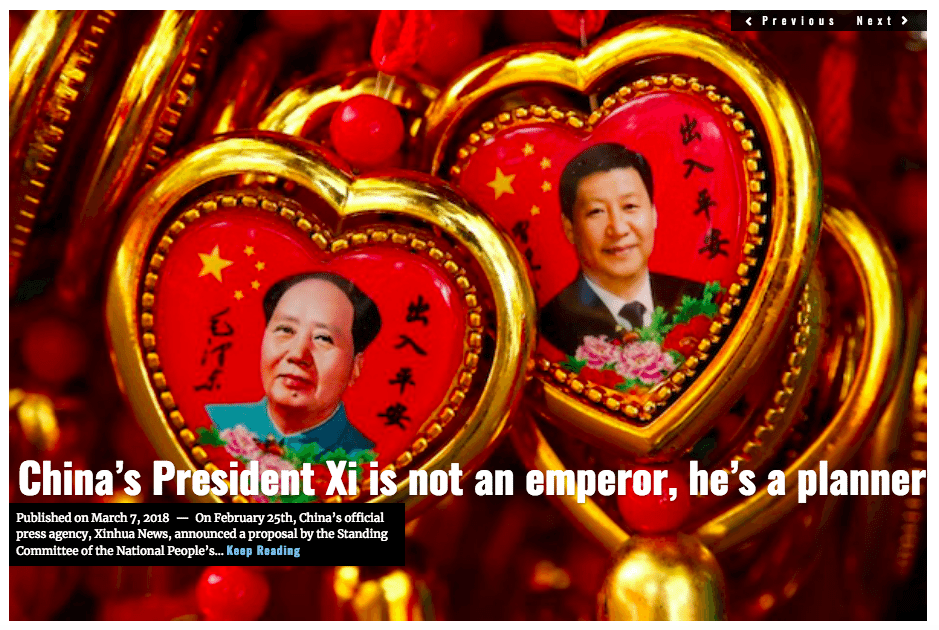
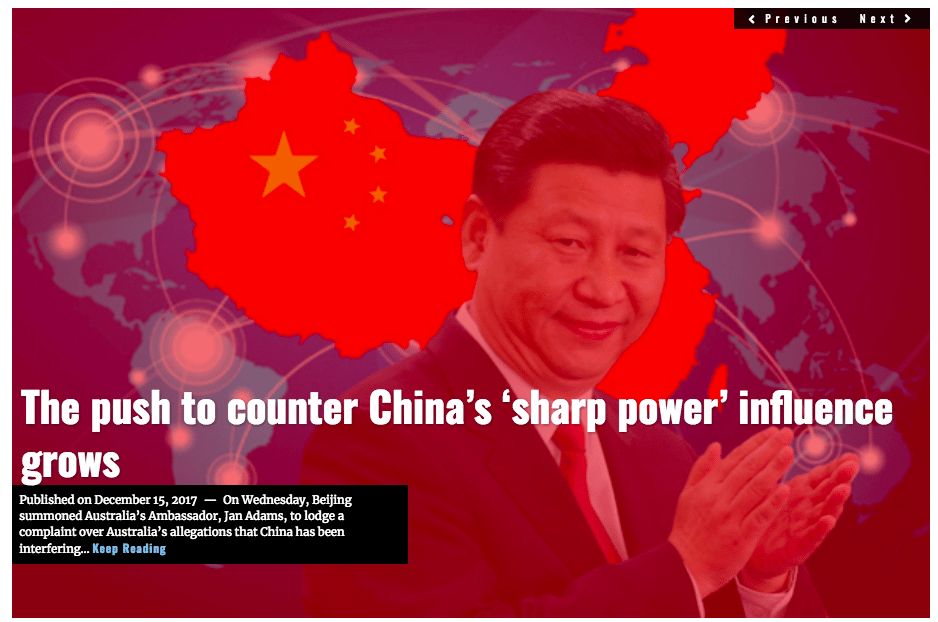
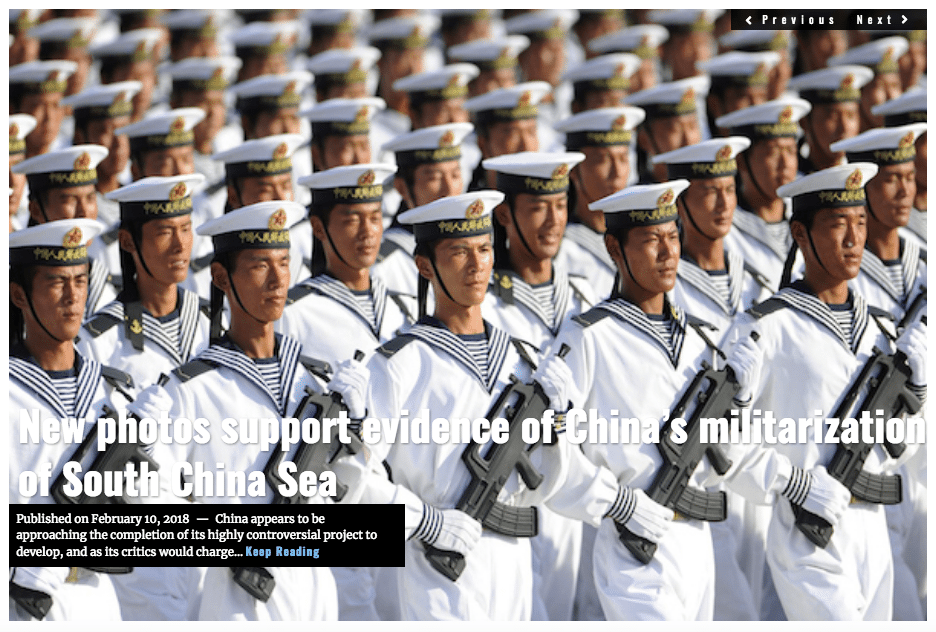
![image Resistance mounts against China's President Xi Jinping [Lima Charlie News][Photo: Johannes Eisele / AFP]](https://limacharlienews.com/wp-content/uploads/2018/08/Resistance-mounts-against-Chinas-President-Xi-Jinping-480x384.jpg)
![Image Little choice for Russia and China but to link up [Lima Charlie News]](https://limacharlienews.com/wp-content/uploads/2018/09/headlineImage.adapt_.1460.high_.russia_china_opinion_052114.1400674740238-480x384.jpg)


![Blossoming Russo-Turkish alliance leaves U.S., NATO behind [Lima Charlie News]](https://limacharlienews.com/wp-content/uploads/2019/07/Russia-Turkey-alliance-leaves-U.S.-NATO-behind-480x384.png)
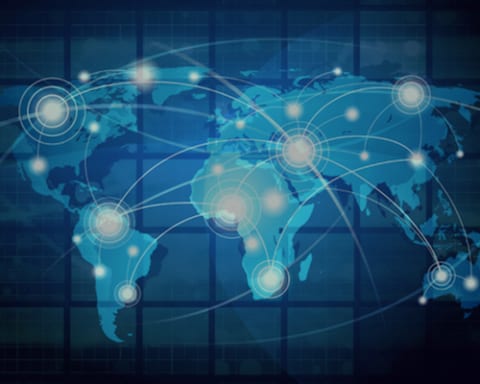
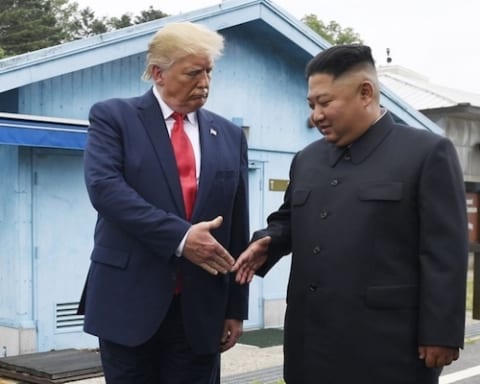
![image Resistance mounts against China's President Xi Jinping [Lima Charlie News][Photo: Johannes Eisele / AFP]](https://limacharlienews.com/wp-content/uploads/2018/08/Resistance-mounts-against-Chinas-President-Xi-Jinping-150x100.jpg)
![Image Little choice for Russia and China but to link up [Lima Charlie News]](https://limacharlienews.com/wp-content/uploads/2018/09/headlineImage.adapt_.1460.high_.russia_china_opinion_052114.1400674740238-150x100.jpg)